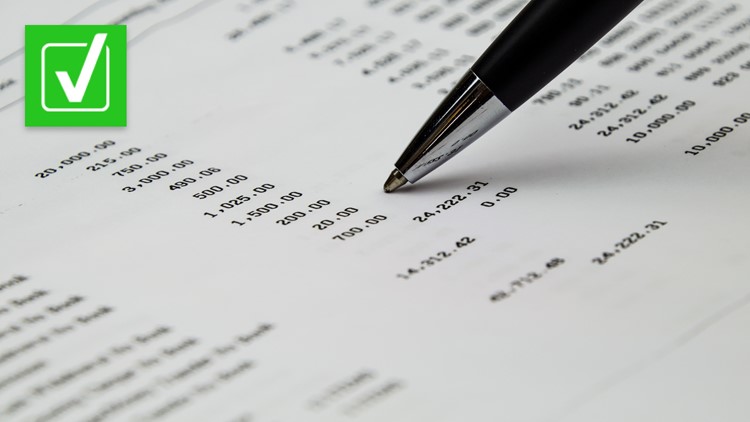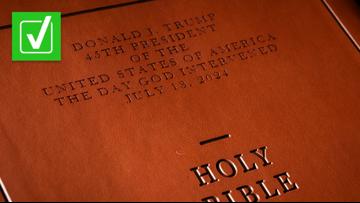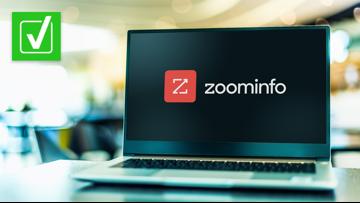Federal laws require banking and utility companies to provide customers with important financial information, including monthly statements showing all of a person’s transactions or payments they owe.
Banking companies are required to “mail or electronically deliver statements at least 21 days before the payment due date,” the Office of the Comptroller of the Currency says. Many banks have switched to a default of offering e-statements, instead of delivering them by mail.
Utility companies have similar legal requirements, with most sending out monthly bills to customers.
In some cases, people who want to keep getting paper statements are now required to pay an additional fee. VERIFY reader Christina reached out to ask if the fee for paper statements is legal.
THE QUESTION
Is it legal for companies to charge customers a fee for paper statements?
THE SOURCES
New York state law
Pennsylvania state law
Daniel Cohen, founding partner of Consumer Attorneys
A Wells Fargo representative
A U.S. Bank representative
THE ANSWER
Yes, it's legal for companies to charge for paper statements in every state but New York and Pennsylvania.
WHAT WE FOUND
There’s no federal law that prohibits banking or utility companies from charging customers a fee to receive paper statements, Consumer Action says. States can pass their own laws banning these fees, but this has only happened in two states.
Banking companies are, however, required to make customers aware of any changes to how they get their statements. The Electronic Signatures in Global and National Commerce Act (E-Sign Act) requires that “the customer must affirmatively consent to electronic delivery” and “the consumer must be given notice of the right to withdraw consent for electronic delivery,” the National Consumer Law Center says.
Banks and credit card companies may provide an upfront notice to customers that says paper statements will cost extra, Daniel Cohen, founding partner of Consumer Attorneys explains. The E-Sign Act requires that companies notify customers upfront about how much the fee is for paper statements.
Both Wells Fargo and U.S. Bank do not charge customers a fee for choosing to receive paper statements instead of online statements, spokespersons for the banking companies confirmed to VERIFY. Capital One, Bank of America and American Express all have disclaimers on their websites that requesting paper statements may lead to additional charges.
Two states have passed laws banning companies from charging fees for paper statements.
New York state law says that “no person, partnership, corporation, association or other business entity shall charge a consumer an additional rate or fee or a differential in the rate or fee associated with payment on an account when the consumer chooses to pay by United States mail or receive a paper billing statement.”
In other words, companies cannot charge customers extra for choosing to receive paper statements instead of electronic statements.
The New York law, however, does not prohibit companies from offering an incentive to opt-out of paper statements. While a company may not be able to charge more for choosing to receive a paper statement, you may be missing out on a discount if you choose the paper option over an electronic one.
Pennsylvania has a law that specifically prohibits public utility companies from charging a fee for a paper bill or invoice. The legislation includes “energy, water, wastewater and telecommunications utilities.”
In 2022, West Virginia’s Public Service Commission also ordered telecommunications company Frontier to stop charging customers for a paper bill. Although the state does not have a specific law against paper billing fees, the commission found the charge to be discriminatory.













